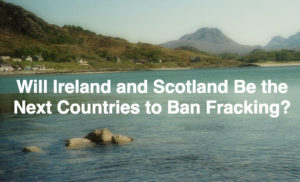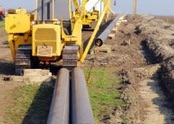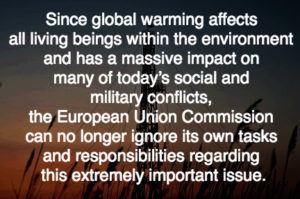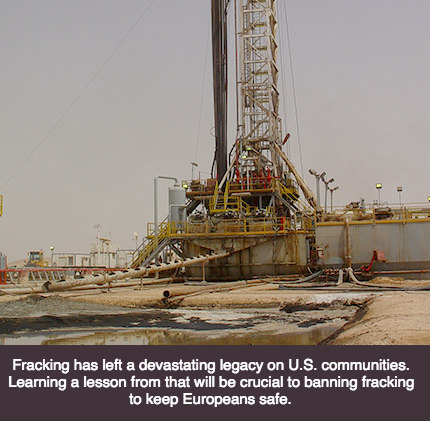
In a historic vote at the beginning of this year, Ireland opted in favour of a law that will make the green island the world’s first country to fully divest from fossil fuels. This goes even further than the decision by the 2015 decision of Norwegian parliament to divest the country’s sovereign wealth fund from dozens of coal-related investments.
And it’s not the only clear movement of the Celtic Tiger towards a much needed post-fossil future. On October 27, a bill calling for a fracking ban passed its first hurdle in the Irish House of Representatives (Dáil Éireann). In the meantime, Irish officials have also decided to undertake a public consultation on the provisions of this bill together with the Joint Research Programme on the Impacts of Hydraulic Fracturing on the Environment and Human Health, led by the Irish Environmental Protection Agency.



 On 17 February, the EU Commission
On 17 February, the EU Commission  DG Environment from the EU-Commission seems to have its hands bound and is largely unable to protect Europeans from health hazards caused by fracking. There are a few initiatives such as the Human Biomonitoring Initiative (
DG Environment from the EU-Commission seems to have its hands bound and is largely unable to protect Europeans from health hazards caused by fracking. There are a few initiatives such as the Human Biomonitoring Initiative (

 Many people said 2016 was a bad year. And there were many reasons: the result of the US elections, Brexit, or the high toll of environmental activists that were killed for standing for their communities around the globe. We don’t know what 2017 will look like, but we are sure that we want to be ready for some of the challenges we will find for our food, our water, our climate and our democracy. Together, we need to make 2017 a better year. And united we will have the power to do so!
Many people said 2016 was a bad year. And there were many reasons: the result of the US elections, Brexit, or the high toll of environmental activists that were killed for standing for their communities around the globe. We don’t know what 2017 will look like, but we are sure that we want to be ready for some of the challenges we will find for our food, our water, our climate and our democracy. Together, we need to make 2017 a better year. And united we will have the power to do so!